From July 14 to 27, 2025, the two-week "Global Mental Health Promotion: Cultural Commonalities and Differences" International Summer School was successfully held, hosted by the Department of Psychological and Cognitive Sciences at Tsinghua University and organized by the Tsinghua University Research Centre for Cultural Psychology. Eighteen students from psychology-related majors at renowned universities such as Harvard University, Massachusetts Institute of Technology, University of California, Berkeley, and University of California, San Diego participated. This summer school invited more than thirty scholars from related fields to teach students, offered 16 lectures and 10 experiential activity courses, through which students explored academic frontiers in psychology and experienced the integration of diverse cultures, technology, and psychology.
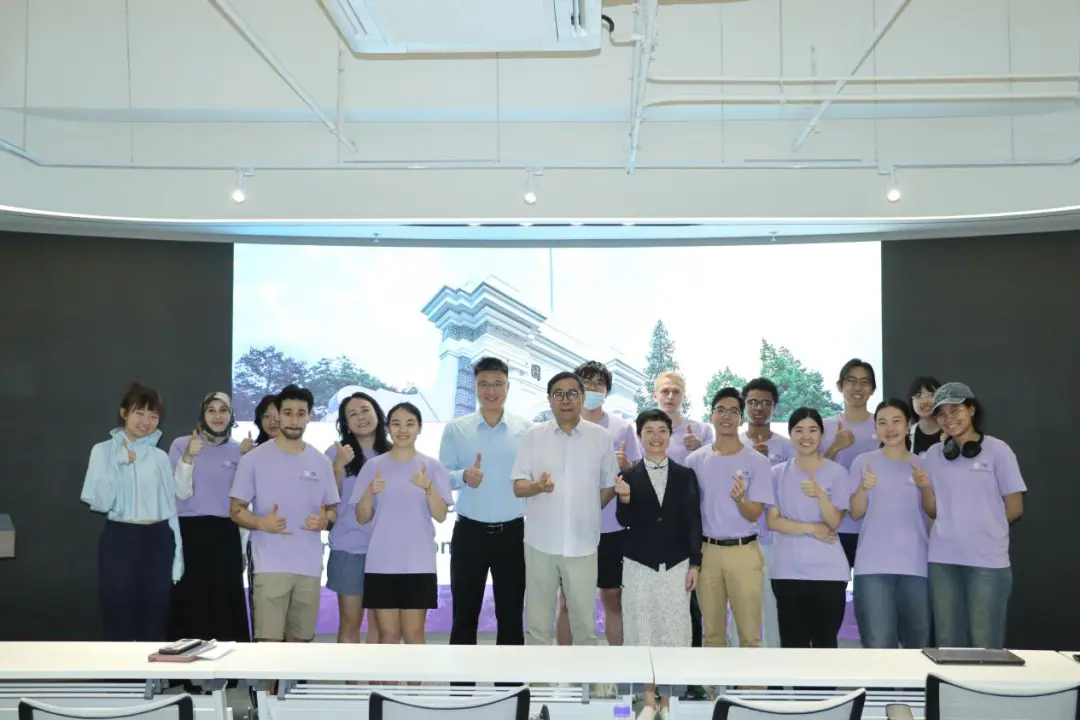
Group photo at the summer school opening ceremony
1.Frontier classrooms in cross-cultural psychology
This summer school invited numerous scholars from psychology-related fields both inside and outside the university to teach students. They provided engaging sessions on themes such as Chinese culture and psychological practice, technology-enabled mental health, the intersection of social culture and brain science, and in-depth insights into special topics.
Kaiping Peng from Tsinghua University Department of Psychology started with positive psychology in Chinese culture, explaining how indigenous cultural wisdom can inspire approaches to mental health, Chaogan Yan from Tsinghua University Department of Psychology focused on precision intervention for depression based on neuroimaging and Chinese culture, demonstrating new therapeutic approaches that integrate culture and technology; Tianjun Liu from Beijing University of Chinese Medicine took the "unity of heaven and humanity" thought as an entry point to explore its theoretical foundation and practical application in psychotherapy; Weirong Shen from Tsinghua University School of Humanities explored the application of traditional Chinese culture in hospice care; Zhen Wu from Tsinghua University Department of Psychology started from the development of children's social cognition and emotional intelligence, provided an in-depth analysis of the evolutionary mechanisms of theory of mind, moral consciousness, and empathy, and explored the limitations of AI in understanding emotions; Minlie Huang from Tsinghua University Department of Computer Science analyzed the frontier development of social intelligence and large language models; Dan Zhang from Tsinghua University Department of Psychology revealed the psychological and neural mechanisms of affective brain-computer interfaces; Wenting Mu from Tsinghua University Department of Psychology further explored new directions in digital therapy and AI-driven mental health.
In the social culture and brain science intersection theme, Xiaoqin Wang from Tsinghua University Brain and Intelligence Laboratory examined the neural connections between music and the brain; Xiaoyu Li from Tsinghua University School of Social Sciences revealed the mechanisms linking sleep and social relationships; Fei Wang from Tsinghua University Department of Psychology presented research achievements in cultural neuroscience with the topic "How Culture Shapes the Brain."
In the "In-depth Insights into Special Topics" section, Jun Jing from Tsinghua University School of Social Sciences analyzed the social phenomenon of "reverse terminal care"; Yue Hu from Tsinghua University School of Social Sciences analyzed the perception mechanisms of economic inequality through multi-dimensional indicators, revealing the deep role of social comparison, institutional differences, and media communication in constructing inequality cognition; Xiaomeng Hu from Renmin University of China emphasized the important value of cultural psychology in the context of globalization; Tianmei Si, Associate Dean of Peking University Sixth Hospital, gave a lecture titled ‘I Have a Black Dog, It's Called Depression,’ offering in-depth insights into the psychological mechanisms and treatment strategies for mood disorders.
The series of lectures fully demonstrated multi-dimensional understanding of mental health issues from an interdisciplinary perspective, promoting the deep integration of psychological research and social practice.
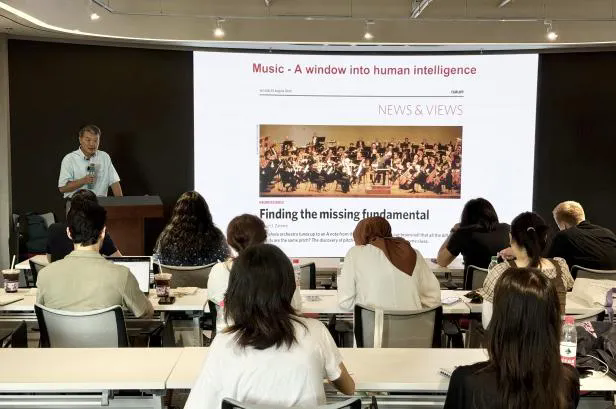
Special lectures and seminars
2.Cultural experience and mind-body exploration
The students of this summer school came from 8 countries including the United States, France, Mexico, Germany, Turkey, Russia, Singapore, and Vietnam. To enable students to deeply experience mental health concepts in the context of East-West cultural integration, the summer school organized rich cultural exchanges and technology experiences, featuring traditional arts and Eastern mind-body practice courses throughout: the Dunhui art exhibition digitally restored Mogao Cave murals, combined with cross-cultural explanations, guiding students to reflect on the relationship between art and emotional healing; mind-body practice activities such as Zen tea, Tai Chi teaching, and mindfulness meditation helped students understand wisdom about focus, self-regulation, and mind-body balance in Eastern philosophy through experience.
Students also collectively visited the "Bringing Death Back to Life" special exhibition, directly facing society's avoidance and fear of death topics through diverse forms such as graphics, videos, and interactive installations, contemplating the meaning of life and possible paths for psychological care in immersive experiences.
In addition, students visited the Tsinghua University Imaging Center and TMS experimental platform, closely understanding the applications of brain imaging technology and transcranial magnetic stimulation in mental health research. Under the guidance of professional personnel, students toured the fMRI data collection and processing workflow, experienced the operation of TMS equipment, gained a deeper understanding of how neuroscience supports psychological intervention, and developed strong interest in future interdisciplinary research.
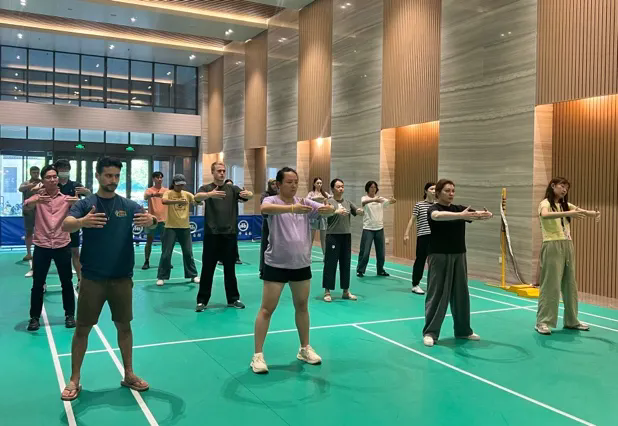
Experiencing Tai Chi
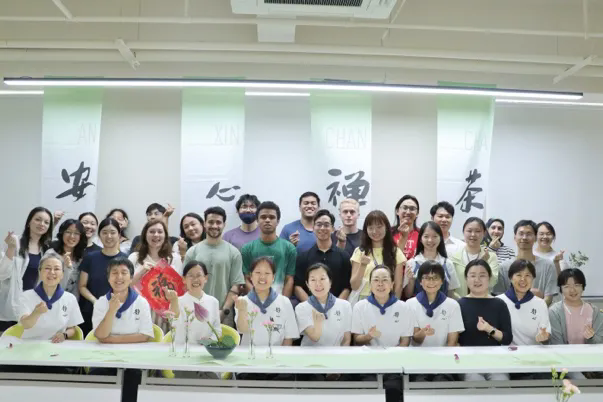
Experiencing Zen tea
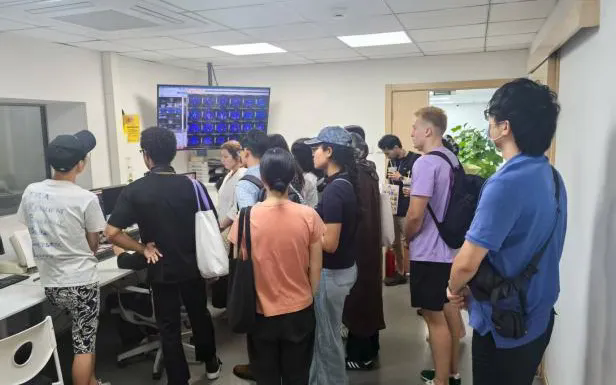
Visiting Tsinghua University Imaging Center
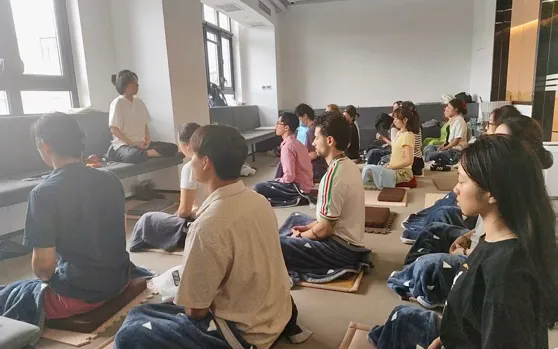
Experiencing mindfulness
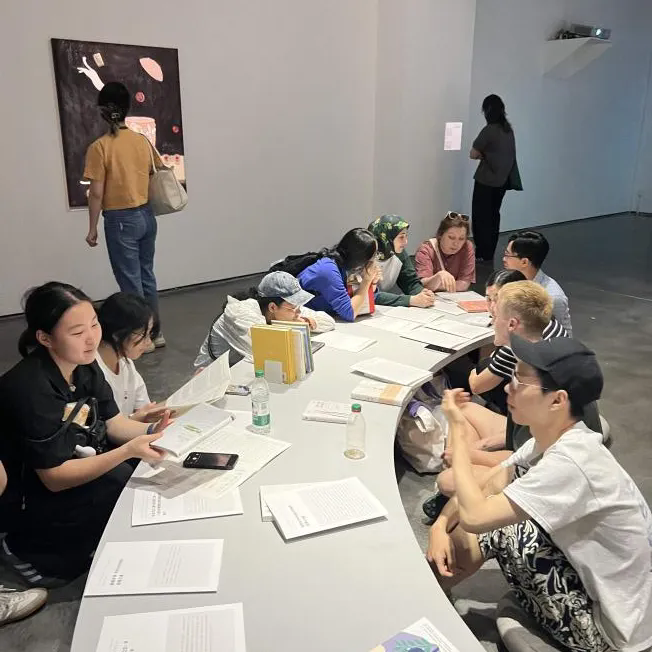
Visiting "Bringing Death Back to Life" special exhibition
3.iCenter maker practice
This summer school conducted maker practice at Tsinghua iCenter, where students participated in multiple projects including ceramic making, mother-of-pearl inlay, fidget spinners, Bluetooth speakers, and miniature gardens, allowing them to experience the appeal of ‘technology + psychology’ cross-disciplinary integration, connecting perception and cognition from traditional crafts to modern technology.
In ceramic and mother-of-pearl workshops, students not only experienced the immersive focus and emotional regulation fostered by handicrafts, but also gained an understanding of the subtle relationships between materials, textures, and psychological responses; in the production process of fidget spinners and Bluetooth speakers, students constructed dynamic and acoustic devices by hand, exploring the principles behind tactile feedback and auditory experience; and in the construction of miniature gardens, students practiced the extension of the "unity of heaven and humanity" concept in contemporary expression through spatial design, further deepening their understanding of environmental psychology and cultural spatial perception.
The maker practice not only enhanced students’ hands-on skills and awareness of interdisciplinary collaboration, but also inspired their multidimensional thinking about mental health intervention methods, becoming a practical sample for promoting innovative integration of technology and humanities.
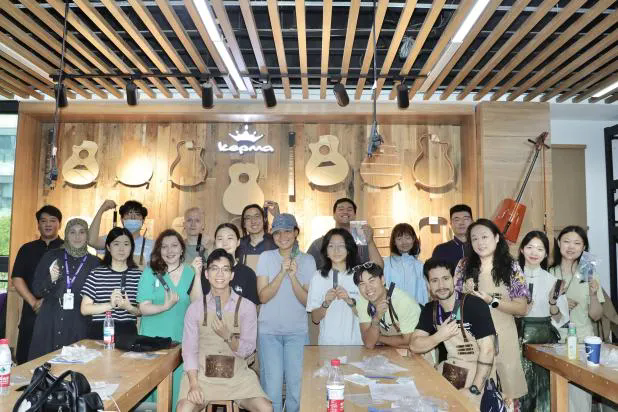
Experiencing mother-of-pearl inlay
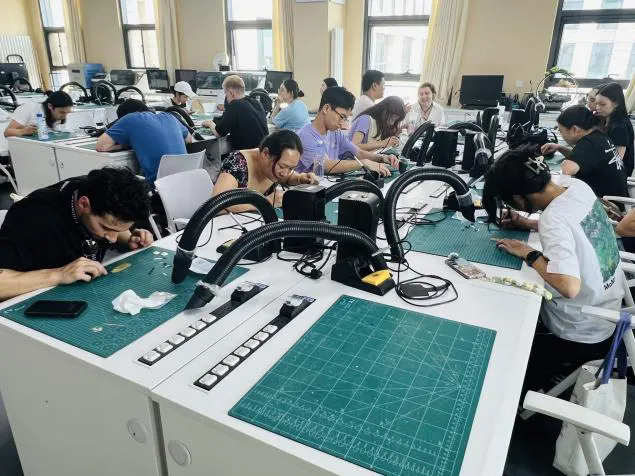
Experiencing making fidget spinners
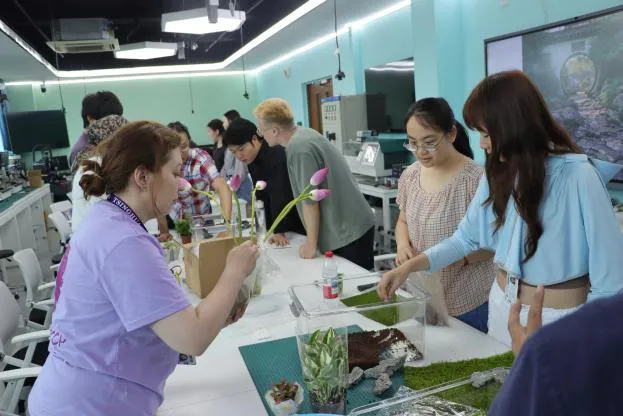
Experiencing Chinese miniature garden art
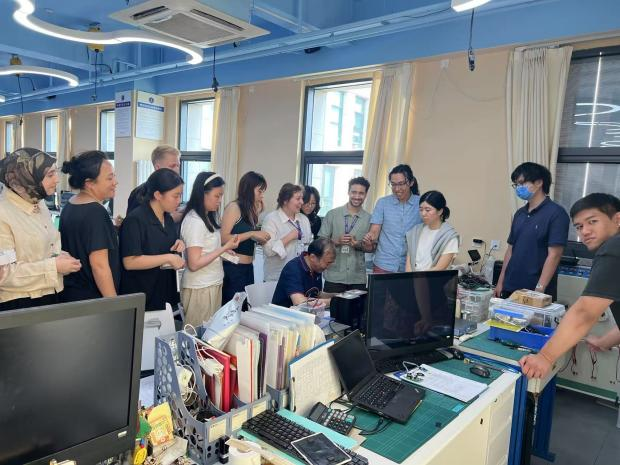
Experiencing making Bluetooth speakers
4.Graduation presentation and learning review
On the last day of the summer school, students conducted project presentations around the theme of artificial intelligence and mental health, integrating knowledge and inspiration accumulated from lectures, practices, and dialogues over two weeks, presenting diverse interdisciplinary outcomes. Students explored scenarios combining AI and psychology, discussing content such as daily mental health support systems and digitized life.
At the closing ceremony, students jointly reviewed this learning journey full of inspiration and exchange, leaving lasting memories of cross-cultural understanding and cooperation.
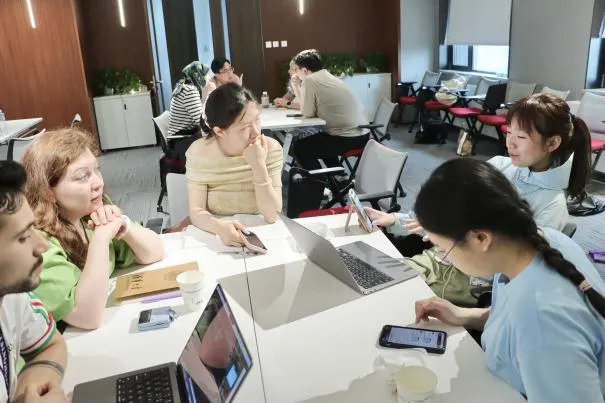
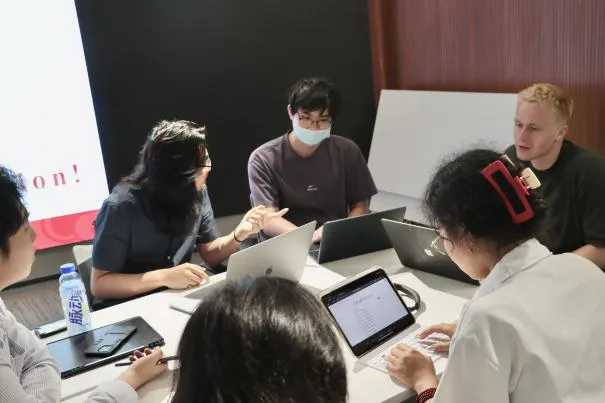
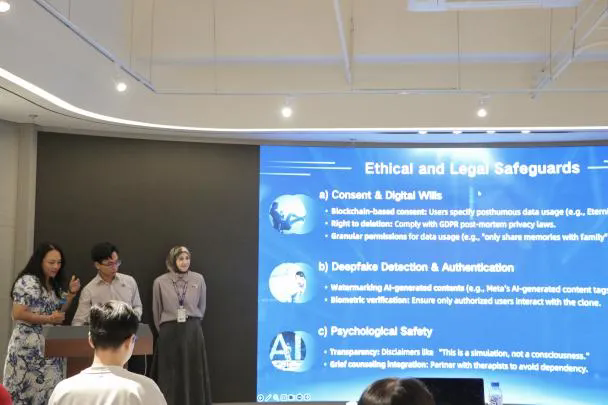
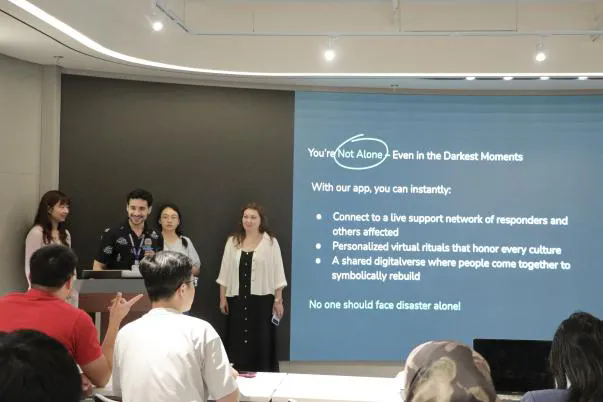
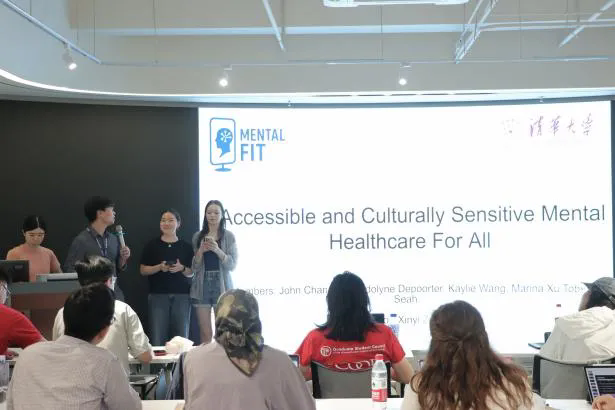
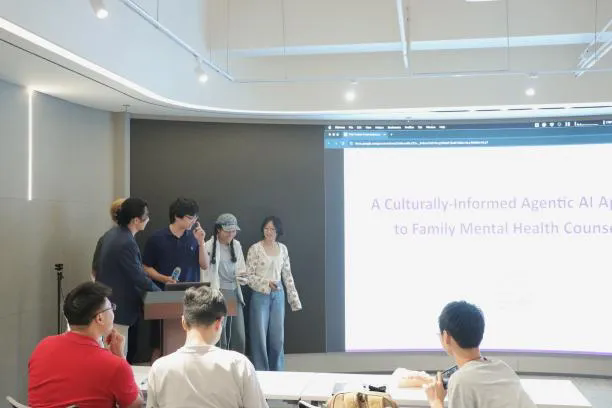
Students conducting group presentations
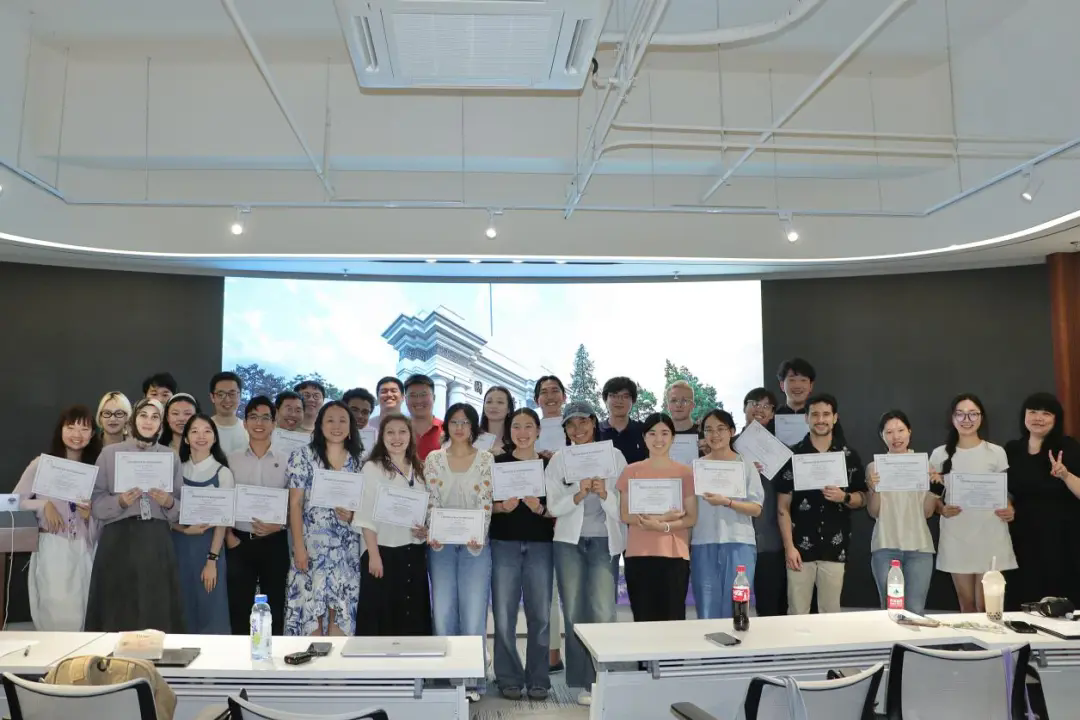
International summer school closing ceremony group photo
The two-week "Global Mental Health Promotion: Cultural Commonalities and Differences" International Summer School concluded successfully in an atmosphere of diversity, academic exchange, and cultural advancement. Students absorbed frontier knowledge in lectures, experienced mind-body wisdom in cultural experiences, and explored innovative pathways for mental health in technology practice. Through project presentations, students closely combined AI, neuroscience, and psychology, demonstrating creativity and critical thinking in interdisciplinary collaboration. Exhibition visits and cross-cultural dialogues also deepened students' understanding of life, emotions, and social relationships.
This study not only expanded students' international perspectives, but also established a bridge for communication between different cultural backgrounds and promoting global consensus on mental health among students, becoming a fulfilling and unforgettable learning experience.

